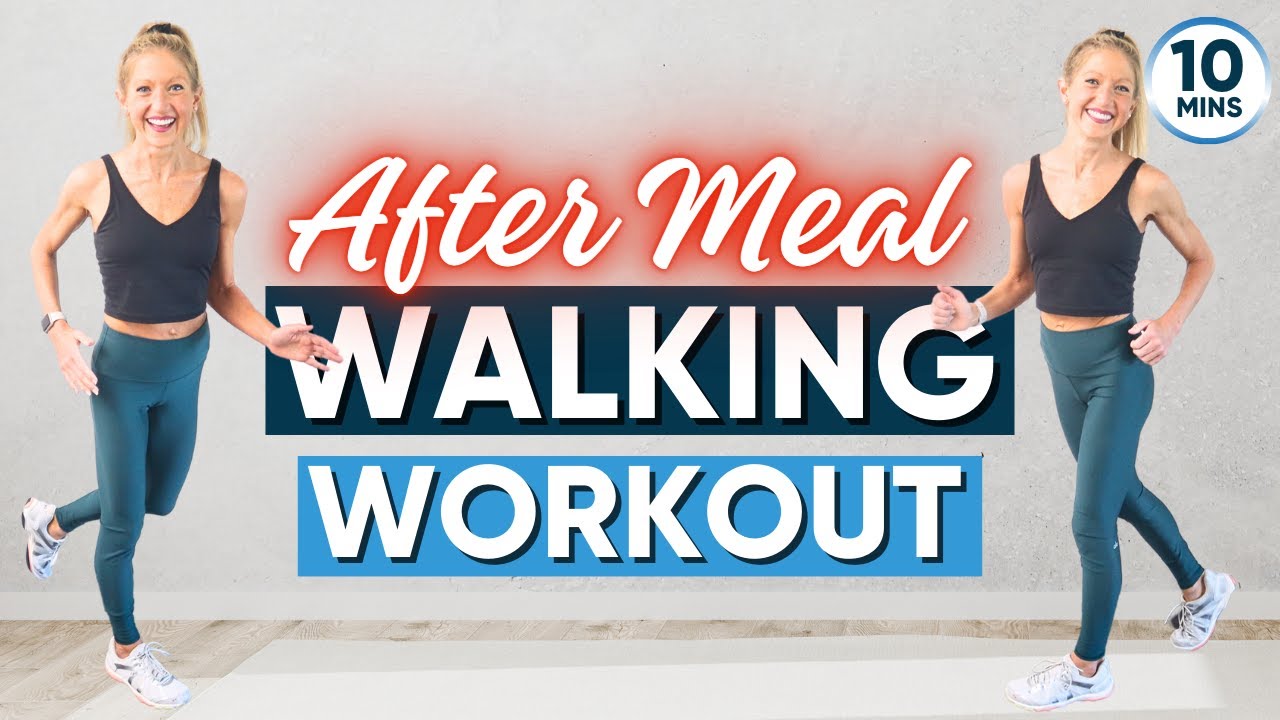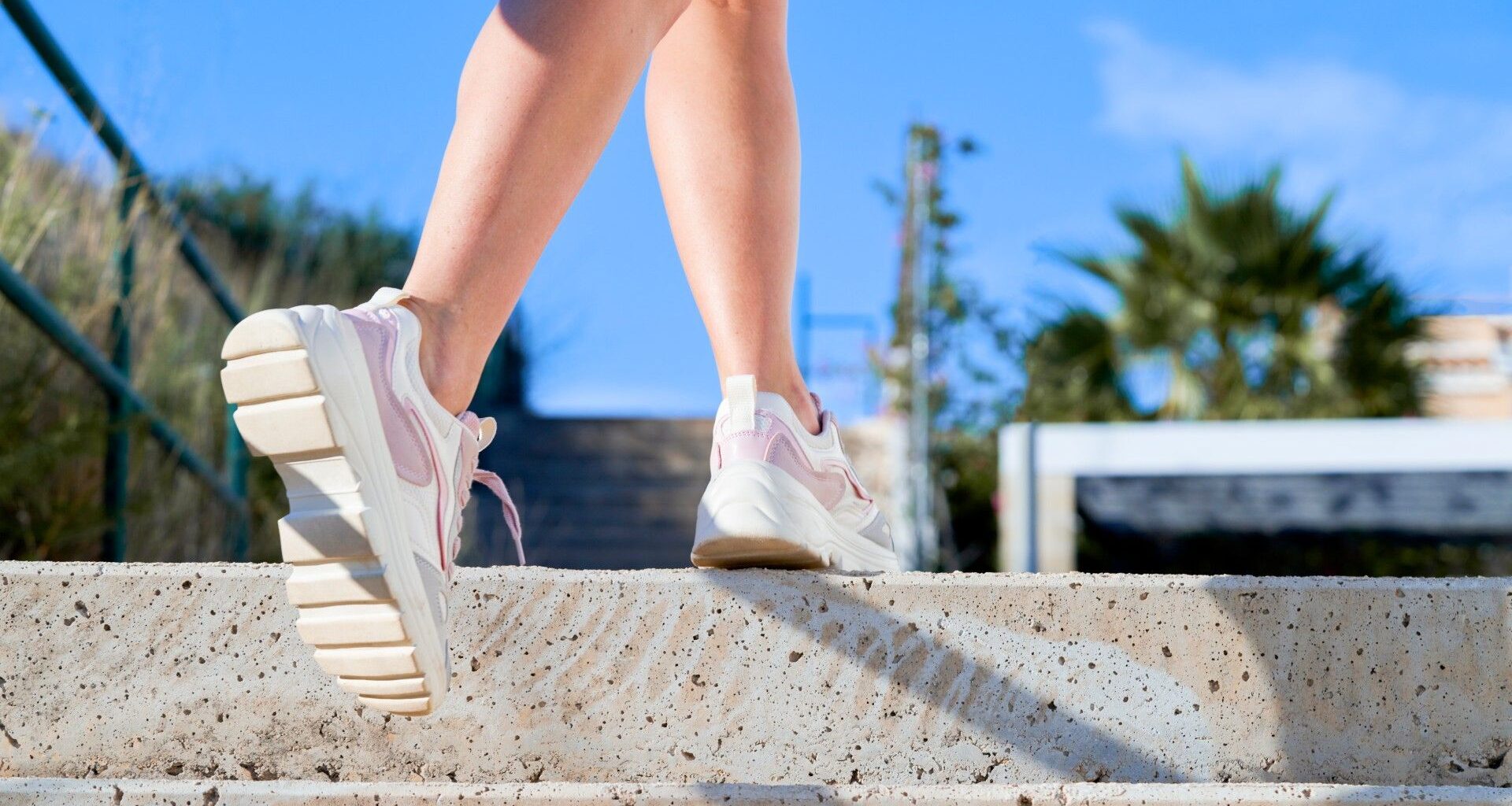After a meal, you might prefer to slump on your sofa and catch up on your favorite TV shows, but what if I told you that you could boost digestion and metabolism with just 10 minutes of a beginner-friendly, low-impact walking workout?
The last thing you might want to do after eating is exercise, but light activities and gentle movement, like walking, could help you manage your blood sugar levels and stimulate digestion, burning energy and aiding fat loss. This routine only takes 10 minutes without any equipment, and it’s suitable for all ages and fitness levels.
Even better, you can do it at home without leaving the house. Below, I reveal the workout and some of the benefits you could expect. It’s time to lace up a pair of your walking or running shoes, because here’s what you need to know.
You may like
Why you should walk after every meal

(Image credit: Getty/ Dougal Waters)
There is a body of research, including this study published in the International Journal of General Medicine, that suggests walking just after a meal could be more effective than waiting for one hour to move, if your goal is weight loss. After one month of walking 30-60 minutes straight after meals, participants lost between 1.5 kg and 3kg (3.3 to 6.6 pounds), and walking briskly was shown to be more impactful than a stroll.
You don’t need to walk for 30 minutes, though, because just 10 minutes could show benefits such as improved blood sugar control, digestion and fat loss over time.
What is the 10-minute walking workout?
After Meal Walking Workout 10 Minutes (LOWER YOUR BLOOD SUGAR!) – YouTube

Caroline Jordan shares a 10-minute indoor walking workout with her followers, and it’s completely free to access. You don’t need any equipment, and it could boost your mood.
“In just 10 minutes, we’ll stroll through movements designed to aid digestion, regulate blood sugar and boost overall well-being,” she says. “Perfect for all fitness levels, this post-meal walk is a simple yet powerful way to enhance your health… Let’s walk our way to better health together!”
The proof is in the pudding when it comes to a good workout.
Excuse the terrible pun, but for me, the proof is in the pudding when it comes to a good workout, so I took a little stroll through the comments section to see what people thought — and I was pleasantly surprised.
One subscriber writes, “It helped me so much with weight loss and every time I do it I feel so energetic!” while another says, “Lovely, calming and gentle and I do feel better.”
Although 10,000 steps is no longer the golden rule (research suggests the number is closer to 7,000, but also depends on your age), your daily step count still plays a vital role in overall health and well-being, as sedentary living is a leading cause of obesity and chronic health conditions.
You may like
This short workout can contribute toward overall energy expenditure, which is useful if your goal is weight loss; remember, the equation for fat loss is energy in < energy out, so just 10 minutes of walking can help balance the scales in your favor.
What does the walking workout involve?
The routine is beginner-friendly and simple to follow, including a mix of side steps, marches on the spot and gentle twists. Jordan says, “Go fast or slow. It doesn’t matter, it’s just great that you’re going.”
“You can use this video immediately after eating to lower your blood sugar,” she adds. Best of all, it’s suitable for walking beginners and all ages, so you don’t need to worry about how fit you are before you get started.
Like fart walking — the concept of getting outdoors and going for a quick walk after your meal — gentle movement post-eating is a low-impact approach to improving cardiovascular fitness and boosting digestion while preventing sedentary lifestyles, helping to keep your muscles, bones and joints strong, too.
You could do this walking workout every day or several times a week. Caroline Jordan features other short workouts on her channel, so if this routine feels repetitive after some time, try switching it up with another workout from her program. Moreover, 10 minutes doesn’t feel like a huge time cost, making it sustainable over the long run (or walk).
Bottom line

(Image credit: Shutterstock)
Studies, like one meta-analysis and systematic review published in Sports Medicine, support post-meal movement for blood sugar management, which is important for metabolic health as you age. This is thought to be in part because exercising aids the cells and muscles to take up glucose from your bloodstream; excess glucose in the blood increases insulin levels and could lead to excess energy being stored as fat. Using glucose reduces overall levels in the blood.
Light movement doesn’t just help the muscles take up glucose for energy to be used by the body; it also aids peristalsis, which refers to the muscle contractions that help gas and food move along your digestive tract. Movement improves relaxation, which is great for gut and digestive health, and regularly adding light activity to your day after eating can also improve your insulin response, which is crucial for metabolic health.
Remember to listen to your body and take it at a pace that suits you, stopping if you feel unwell. Alternatively, walk for longer if you feel able.
More from Tom’s Guide
Today’s best Apple Watch Series 10 and Apple Watch 11 deals

